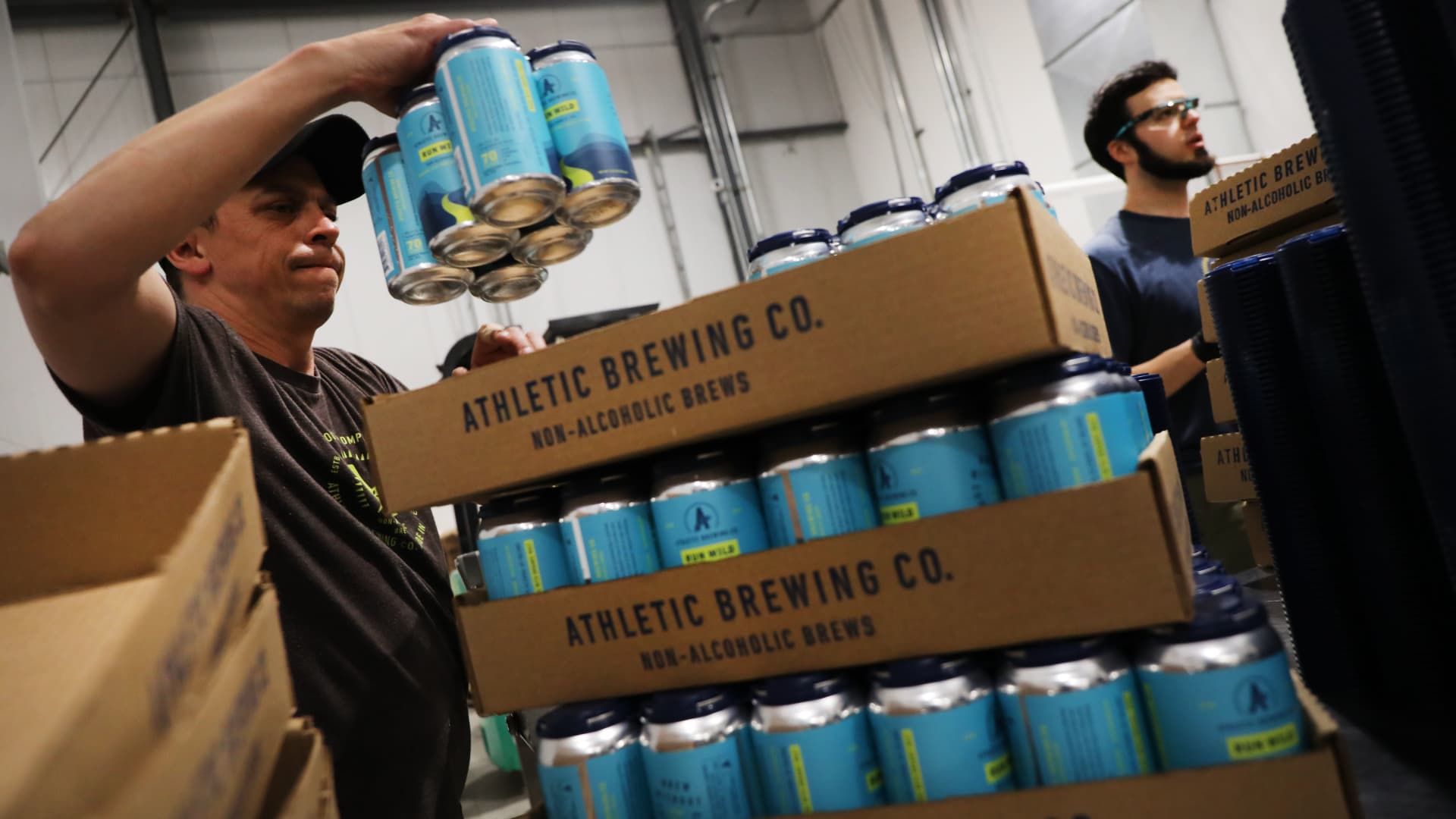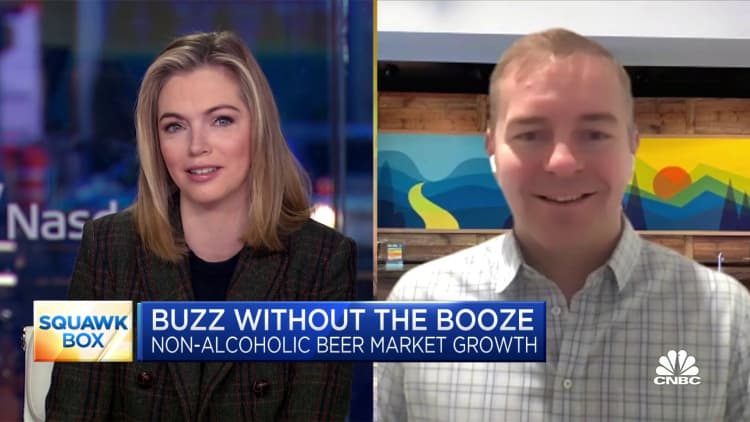

The start of ‘Dry January,’ a month when many people avoid drinking alcohol, typically brings a heightened level of attention to non-alcoholic drinks. But the CEO of one of the leading non-alcoholic beer companies said that the demand for non-alcoholic brews is booming well beyond a single month.
“This is the moment we’ve been waiting for in the category,” Bill Shufelt, Athletic Brewing CEO, said on CNBC’s “Squawk Box “on Wednesday.
Long a sleepy category within the broader industry of beer, non-alcoholic beer has seen its growth skyrocket in recent years as bigger beer giants like AB InBev and Heineken launch new products as well as the emergence of independent brewers like Athletic Brewing. AB Inbev, which owns brands like Budweiser, Corona, Michelob, and Modelo, had previously set a goal of making 20% of its beer volume non-alcoholic and low alcohol by 2025.
The lack of quality non-alcoholic beer options was the impetus for Shufelt, a former trader at Steve Cohen’s Point72 Asset Management, to start the Connecticut-based company in 2017, which solely focuses on non-alcoholic brewing.
“[Non-alcoholic beer] has gone from something that was 0.3% of the beer category and a total afterthought and penalty box beverage to something that is really exciting, aspirational, and kind of reframing how modern adults think,” Shufelt said.
Shufelt said that non-alcoholic beers now make up more than 2% of all beer sold at U.S. grocery stores, and at some national chain retailers, it is upwards of 8% of their beer category.
Cans of beer are packed at Athletic Brewing’s non-alcoholic brewery and production plant on March 20, 2019 in Stratford, Connecticut.
Spencer Platt | Getty Images
Growth of the non-alcoholic beer category
With more consumers choosing non-alcoholic beers in a move towards healthier drinking alternatives and safer drinking habits, the global non-alcoholic beer market has grown to $22 billion in 2022, according to GMI Insights, which projects that could reach $40 billion by 2032. According to Nielsen, non-alcoholic beer grew 20% in the U.S. in retail dollars in the past year.
Still, non-alcoholic beer makes up a small percentage of the total global beer market, which is valued at more than $750 billion.
But the growth of the overarching category has helped Athletic Brewing, which Shufelt said has a 55% market share of craft non-alcoholic beer. Athletic Brewing had $37 million in revenue in 2021, a three-year revenue growth of 13,071%, according to Inc. Magazine.
In November, Keurig Dr. Pepper made a $50 million investment into Athletic Brewing, receiving a minority equity stake akin to the brewer’s other lead investors such as TRB Advisors and Alliance Consumer Growth. To date, Athletic Brewing has raised more than $175 million.
This latest investment is allowing Athletic Brewing to invest in its facilities in Connecticut and San Diego, helping the brewing company “be a totally differentiated producer of non-alcoholic beer,” Shufelt said.
“That’s an investment that no one else is making in the category, so Athletic is really pulling it forward,” Shufelt said. “We’re passing the biggest of the big brands in the overall category, and are on track this year to become the number one player overall.”







